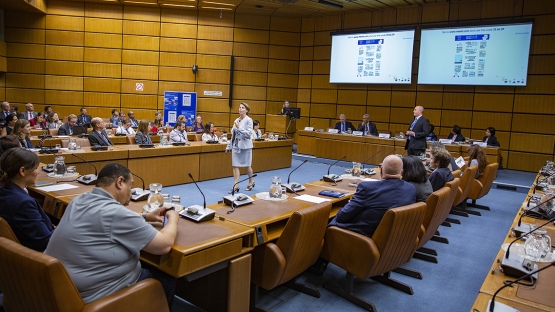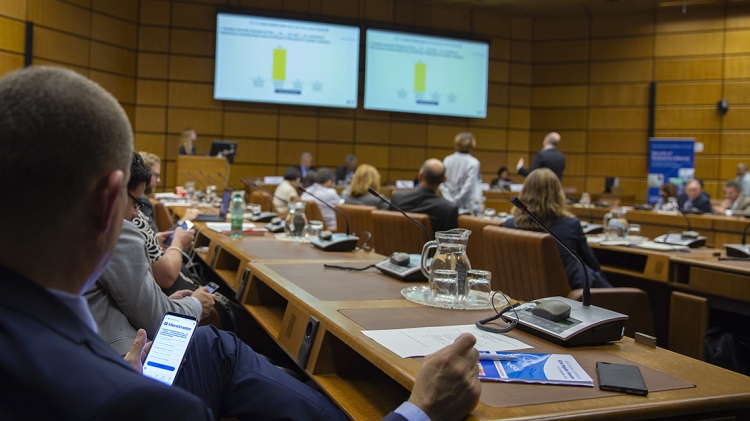The responsibility for nuclear security within a State rests entirely with that State. The importance of making nuclear security regimes sustainable for the long-term protection of people, property and the environment was the focus of a panel discussion today, held on the sidelines of the IAEA’s 62nd General Conference.
The IAEA helps, upon request, national policymakers and experts to improve nuclear security, manage radioactive sources and combat nuclear terrorism. This aims to reduce the risk that nuclear or other radioactive material could be used to create a threat to international security.
The event highlighted IAEA resources that can help States ensure that their nuclear security regimes remain sustainable over time. Speakers emphasized the role of key publications in the IAEA’s Nuclear Security Series, which provide international consensus guidance on various aspects of nuclear security.
“Following the guidance in the Nuclear Security Series is key to achieving sustainable nuclear security regimes,” said Raja Raja Adnan, Director of the IAEA Division of Nuclear Security. “The documents in the series offer guidance to Member States on systems and measures that they can use to strengthen their national nuclear security regime.”
Through a holistic approach, the Integrated Nuclear Security Support Plans allow the various nuclear security stakeholders in the country to know their individual responsibilities and better coordinate work in the event of a nuclear security breach.







